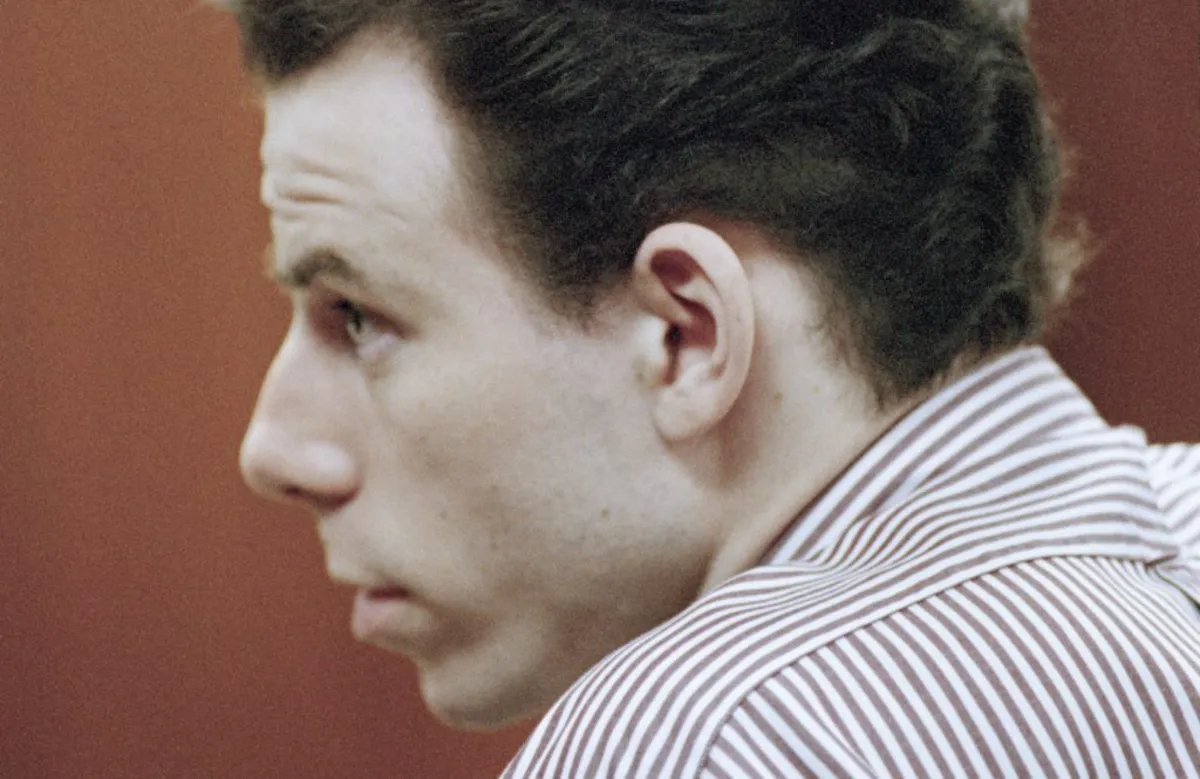
In a recent hearing held on Thursday, Erik Menendez was denied parole by a panel of California commissioners. This session marked a significant moment, as Menendez offered his most comprehensive account in years regarding his upbringing and the choices he made during the murder of his parents and his subsequent years in prison. Despite his detailed testimony, the California parole board ultimately decided against his release, citing various factors including his behavior while incarcerated.
Erik Menendez, along with his brother Lyle, was sentenced to life in prison in 1996 for the brutal murders of their parents, Jose and Kitty Menendez, in their Beverly Hills mansion back in 1989. The California state corrections department permitted only one reporter to observe the videoconference of the hearing, thereby controlling the flow of information to the press.
During the hearing, Erik emphasized the lack of a moral foundation in his upbringing. He stated, “I was not raised with a moral foundation. I was raised to lie, to cheat, to steal.” He recalled instances where his father encouraged cheating during tennis games, highlighting the absence of a clear understanding of right and wrong during his formative years.
Menendez has long claimed he was a victim of sexual abuse at the hands of his father. He shared with the commissioners, “I fantasized about my father not being alive.” When questioned about why he chose to kill his father instead of leaving the family home, Erik explained, “In my mind, leaving meant death. There was no consideration. I was totally convinced there was no place I could go.” He elaborated on the fear he felt, stating, “It’s difficult to convey how terrifying my father was.”
In response to inquiries about the murder of his mother, Menendez revealed that he did not distinguish between his parents, as he later learned that his mother was aware of the abuse he suffered. “It was the most devastating moment in my entire life. It changed everything for me. I had been protecting her by not telling her,” he said, adding, “I wish to God I did not do that” in reference to shooting his mother.
The parole commissioners expressed concern regarding numerous rule violations committed by Menendez while in prison. These included consuming alcohol, associating with a gang, and possessing a cellphone. When asked about his decision to use a cellphone, he stated, “What I got in terms of the phone and my connection with the outside world was far greater than the consequences of me getting caught with the phone.” He also discussed his struggles with substance abuse, revealing, “If I could numb my sadness with alcohol, I was going to do it.”
In 2013, Menendez made a pivotal decision to become sober and sought faith in his life. “From 2013 on I was living for a different purpose. My purpose in life was to be a good person,” he explained. He reflected on his future, asking himself, “Who do I want to be when I die?” Menendez expressed hope that he would present a different case to the parole board in the future.
The panel of two parole commissioners ultimately deemed Menendez unsuitable for release. They cited his actions in prison, such as gang affiliation and cellphone possession, as indicators that he posed a risk to public safety. Commissioner Robert Barton noted, “One can pose a risk to public safety in many ways, with several types of criminal behavior, including the ones you were guilty of in prison.” Menendez will have the opportunity to appear before the parole board again in three years, with Barton encouraging him to change his behavior in the interim. “You have two options,” Barton advised. “One is to have a pity party … and then you become a self-fulfilling prophecy, probably not getting granted next time. Or you can take to heart what we discussed.”